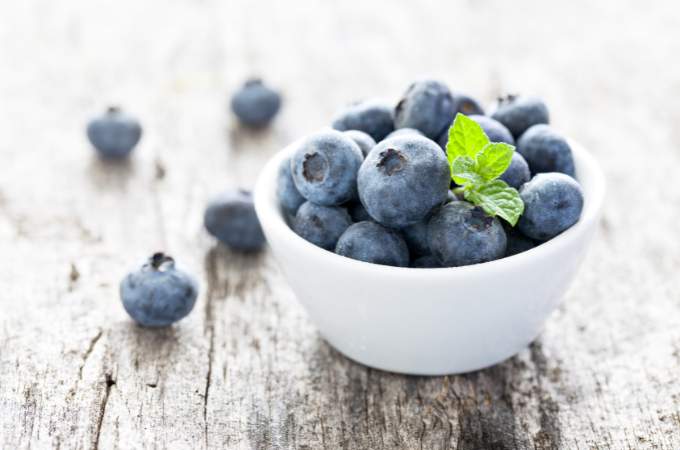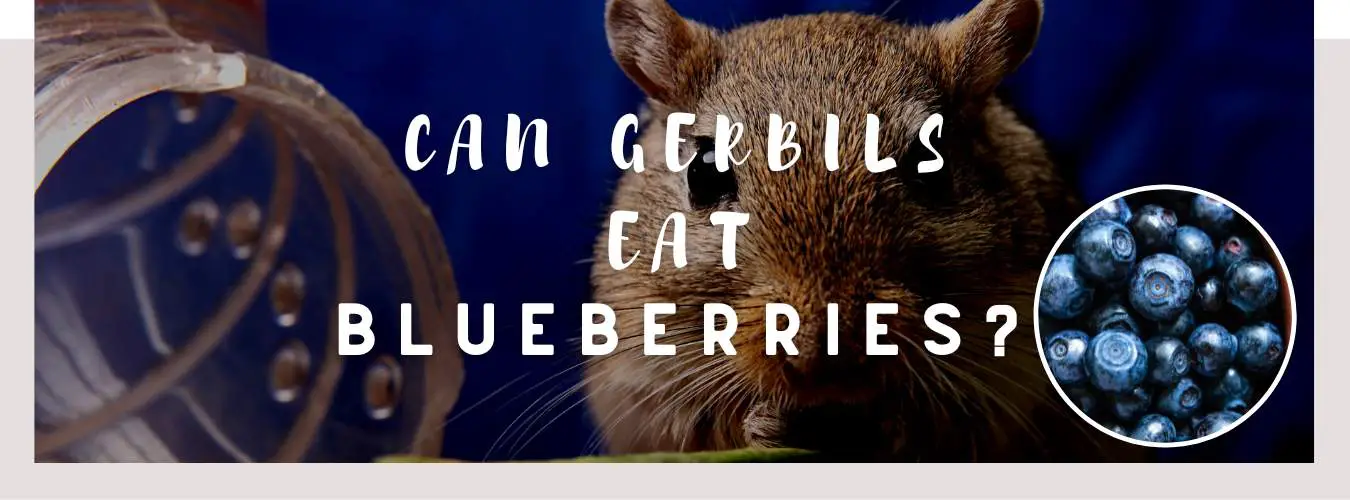
Gerbils, adorable and energetic small rodents, have specific dietary requirements that are crucial for their health and wellbeing. Understanding what foods are safe and beneficial for them is key for any gerbil owner. This article explores the suitability of blueberries in a gerbil’s diet, examining the potential benefits and risks of feeding these fruits to your furry friend.
Blueberries are known for their high nutritional value, packed with vitamins, antioxidants, and fiber. They are low in calories and sugar, making them a healthy snack for humans. But how do these nutritional factors translate to gerbils?
Benefits of Blueberries for Gerbils
Feeding blueberries to gerbils can offer several health benefits:
- Antioxidants: Blueberries are rich in antioxidants, which can help protect gerbils from cellular damage and support their overall health.
- Vitamin C: This vitamin is essential for gerbils, aiding in their dental and bone health.
- Fiber: Aids in digestion and helps prevent obesity and diabetes, common issues in gerbils.
Risks and Considerations
While blueberries offer health benefits, there are risks to consider:
- Sugar Content: Despite their low sugar content, excessive amounts can lead to obesity and dental problems in gerbils.
- Size and Choking Hazard: Due to their small size, gerbils could choke on whole blueberries. It’s essential to cut them into smaller pieces.
- Pesticides: If not organic, blueberries may contain harmful pesticides, which can be toxic to gerbils.
You might also like: What Can Gerbils Eat?

Recommended Quantity and Frequency
Moderation is key when introducing blueberries to a gerbil’s diet. A small piece of blueberry once or twice a week is sufficient. Always monitor your gerbil’s reaction to new foods and consult a veterinarian if you notice any adverse effects.
Practical Feeding Tips
To safely incorporate blueberries into your gerbil’s diet, follow these tips:
- Wash Thoroughly: Ensure the blueberries are free from pesticides and other contaminants.
- Cut into Small Pieces: Prevent choking by cutting the blueberries into manageable sizes.
- Introduce Gradually: Start with a tiny amount to observe how your gerbil reacts.
- Monitor Health: Keep an eye on your gerbil’s health and behavior after introducing blueberries.
Understanding Blueberries in a Gerbil’s Diet
To fully grasp the role of blueberries in a gerbil’s diet, it’s important to delve deeper into the specifics of this fruit and how it aligns with a gerbil’s nutritional needs. Gerbils are naturally adapted to a diet that is high in grains and low in fruits and vegetables. Their digestive systems are designed to process a specific type of diet, and any deviations should be considered carefully.
Chemical Composition of Blueberries
Blueberries are a powerhouse of various vitamins and minerals. They contain significant amounts of Vitamin K, Vitamin C, and manganese. These nutrients are beneficial for gerbils in small quantities. Vitamin K plays a crucial role in blood clotting and bone health, while manganese is essential for enzyme function and bone development.
You might also like: Can Gerbils Eat Tomatoes?
Hydration and Blueberries

Gerbils, originating from dry environments, have evolved to extract maximum water from their food. Blueberries, being high in water content, can provide a source of hydration. However, it’s essential to balance this with the risk of diarrhea, as too much water can disrupt a gerbil’s delicate digestive system.
Feeding Blueberries: A Step-by-Step Guide
- Selection: Choose organic blueberries to minimize exposure to pesticides.
- Preparation: Wash the blueberries thoroughly under clean running water.
- Serving Size: Start with a small piece, about the size of a gerbil’s paw, to avoid overfeeding.
- Observation: After feeding, observe your gerbil for any signs of digestive upset or allergic reactions.
Integrating Blueberries with Other Foods
While blueberries can be a healthy treat, they should be part of a balanced diet. Gerbils also thrive on a mix of grains, seeds, and occasional vegetables. Integrating blueberries with other recommended foods can ensure your gerbil receives a variety of nutrients.
Allergic Reactions and Sensitivities
Like humans, gerbils can have allergic reactions or sensitivities to certain foods, including blueberries. Signs of an allergic reaction include itching, swelling, and digestive upset. If you notice any of these symptoms, discontinue feeding blueberries immediately and consult a veterinarian.
Blueberries and Dental Health
Gerbils’ teeth continually grow throughout their lives, requiring constant gnawing to keep them at a manageable length. While blueberries won’t aid in dental health, providing chewable items like wood sticks alongside blueberries can ensure overall oral care.
The Role of Treats in Training and Bonding
Using blueberries as treats can be a useful tool in training and bonding with your gerbil. The novelty and tastiness of the fruit can be a strong motivator for learning new tricks or behaviors. However, it’s vital to use such treats sparingly to avoid over-reliance and maintain their effectiveness.
Final Thoughts
In conclusion, while gerbils can safely consume blueberries, they should be given as a treat rather than a staple. A balanced diet, appropriate serving sizes, and careful observation are key to ensuring that your gerbil enjoys these fruits without any adverse effects. Remember, the goal is to enrich your gerbil’s diet, not to replace their regular, nutritionally complete food.









